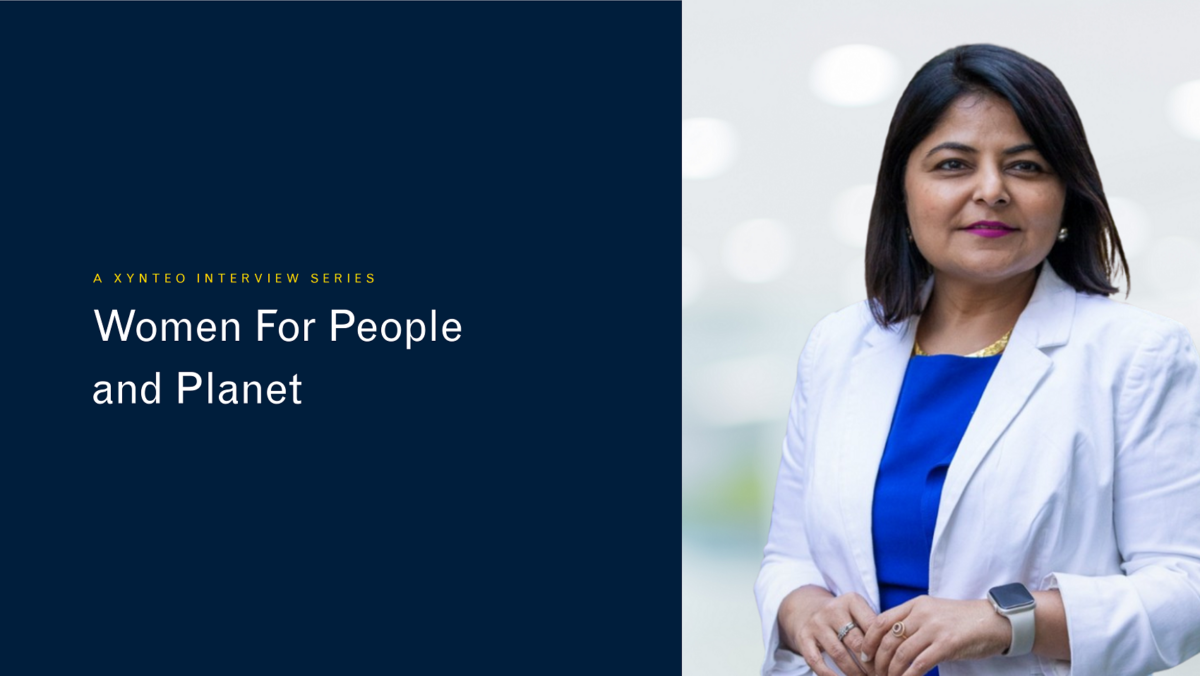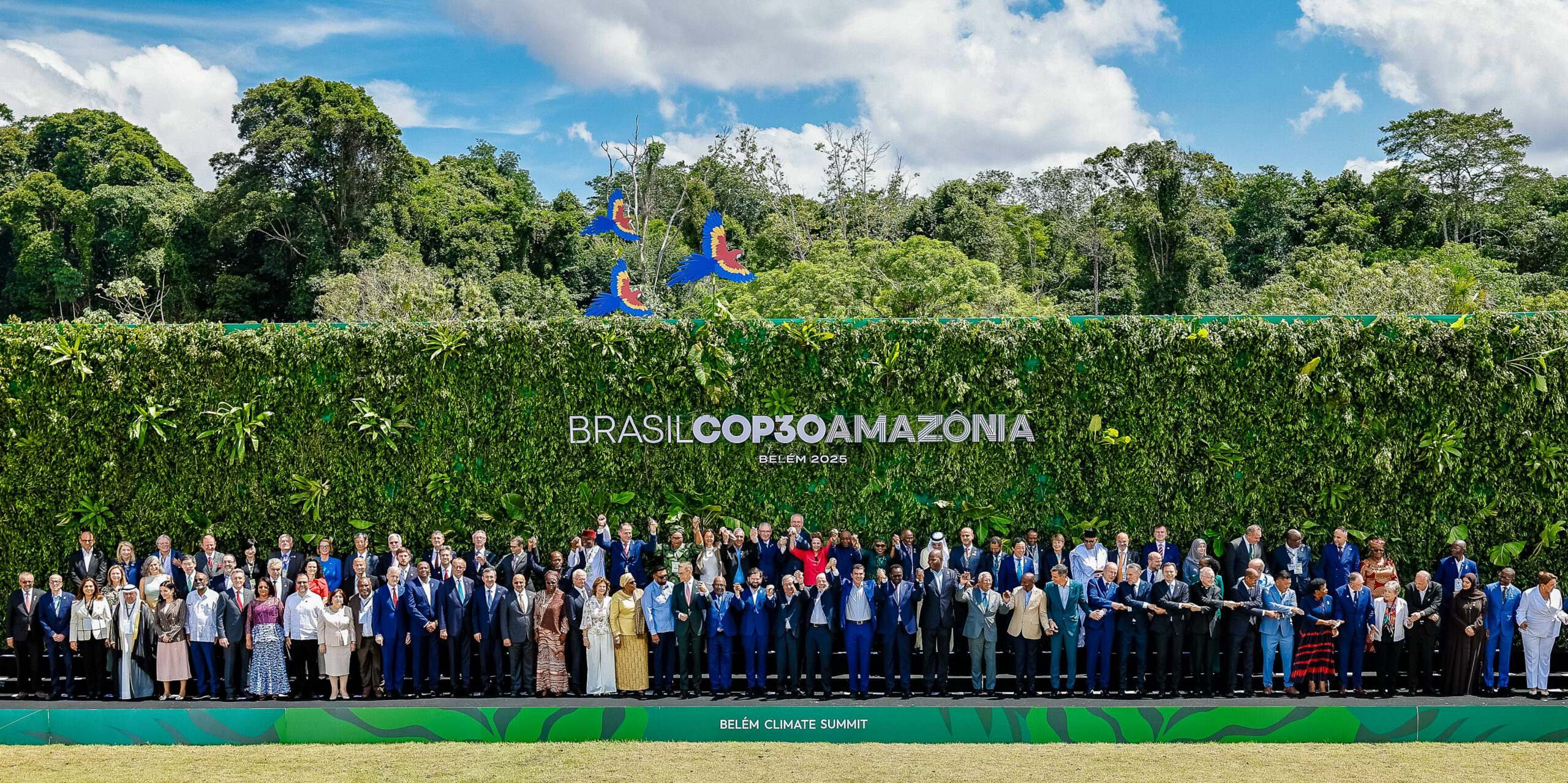Meet Meenu Bagla—the marketing maverick willing to break the mould with her passion and purpose. A leader who climbed the corporate ladder, shattering biases with her authenticity and resilient mentality. Her relentless drive to learn from everyone, be it a 12-year-old or an octogenarian, is what keeps her grounded and inspired.
Xynteo’s Eleanor Besley-Gould and Emily Barrett sat down with Meenu to talk about her journey, what she has learnt, and how she sees the future of purpose in the corporate world.
What does your personal journey towards purposeful thinking and climbing the ladder look like?
Meenu: I think my journey has been about purpose, passion and perseverance. And frankly speaking, when I started out, it was just about self-discovery and self-exploration. During the journey, I realised I was discovering my strengths and weaknesses as well as my purpose.
One of my mentors always told me, once you go up there, don’t forget to send the elevator down. That’s the most powerful message I take with me every day. We have already reached this point because of our passion, our skill set, our expertise, our experiences, our mentors and our allies. But today, the biggest responsibility for us, as senior leaders, is our role in nurturing those following us up. How do we continue this virtuous cycle of empowerment and enablement of the next generation of leaders?
One thing I always tell my team and anybody who asks me, is to find a single driver that keeps you going. Personally, resilience is the one thing that has kept me going. I never let any rejection bog me down or let my failures discourage me. There will always be something that could bring us down—so I always try to find the “glimmers”, instead of the triggers.
Sometimes I am told I am inspirational, or tough, or ambitious. But I also have off days. I will always tell the next generation that it is okay for your crown to fall once in a while. But don’t chase after it because your crown is defined by your own journey.
There are times that you have to balance between racing the race and pacing the race. Nobody tells us that. I was divorced and a single mother at 26, and I had the choice to either give up on my ambition, let it take a backseat, or not lose sight of my ambition and still work the extra mile. And every other week I would find myself on a guilt trip; I didn’t know what my son would think about me. Today my son is doing his undergrad at the University of Madison in the US, and he’s proud of me. And that’s what’s really fulfilling, being able to work past all of my doubts and inhibitions.
In keeping with your analogy, what have been some of the “glimmers” that really stood out on your journey?
Meenu: I have had mentors and friends who were extremely supportive of me. When you are rising and you’re climbing the ladder, everybody’s supporting you and cheering for you, right? It’s only when you’re down in the dumps that you realise that you need the greatest number of “glimmers”.
And I’ve had “glimmers”. I’ve had coaches who were not formally my coaches, who kept me grounded. Every time that I felt like I took 10,000 steps forward and 20,000 backwards, they would push me to take 5,000 more. Plus, the very fact that I had an extremely devoted, committed mother who did not let me question myself on what kind of an independent woman I was turning into—I think that was a huge, huge “glimmer”.
I think another “glimmer” for me was to always be on the path of continuous discovery and look out for the next one.
I never let any rejection bog me down or let my failures discourage me. There will always be something that could bring us down—so I always try to find the “glimmers”, instead of the triggers.
What has been your proudest achievement?
Meenu: I’m very proud of the resilience I’ve shown throughout my career. I have never let failures bog me down and I have never let success go to my head. Because I realised that like it or not, any successful milestone or any drawback in my career is temporary.
For the longest time, there was this quote on my mirror, “This too shall pass”. So, there have been days and even quarters that were really pathetic and I have wondered if I should continue in that role or function—was I really meant for it? And then there have been times I have felt on top of the world. But if I let that success go to my head, I could not have learned and grown.
The second thing that I’m really proud of is that I never, ever shy away from learning. Even if I have to learn from a 12-year-old or a 16-year-old or an 82-year-old, it does not matter. There’s no age for learning.
What barriers have you faced?
Meenu: There are three barriers that I would definitely want to call out because most of us women face them, irrespective of which country we are operating in.
I think the first barrier for me was the fact that I was born and brought up in a very conservative, very middle-class Indian family where girls don’t step out of home. They don’t go out to study and graduate, but I did.
I faced the second barrier very early on in my career when I started to get into sales and business development and consulting. I tried to fit in to be taken seriously, and after a while, I questioned why I was doing it because my colour, my age, my background and even my dresses were holding me back. Those biases have always been barriers, and they still exist today.
Not long after that, I interviewed for a role in a very large multinational company some years ago. After going through my entire resume, the interviewer—a very senior executive—asked me, “So, how are you going to manage the work-life balance? Given that you are a single mother, and you have a little kid.” And in those 30 seconds, a war raged in my head between being politically correct or just telling him exactly what I wanted to say. I told him, very politely, that I would manage work-life balance the same way he did. There was a 15-second silence, because he wasn’t expecting a woman in her early 30s who was looking for a job in a multinational company to answer him like that. And to my surprise, I was hired. That gentleman later told me he hired me because of that answer. He also told me that until then he never realised that he was so unconsciously biased.
Another barrier is the lack of normalisation. In this interview, we are three women on a call. If a man joined, he might say “oh, this is an all-woman call!” But when was the last time you called a meeting an all-man call?!
So the barriers are culture, gender, upbringing, even personality. I mean, I have been told so many times that in a room full of really senior executives, I must be less animated. However, today, I don’t worry about that anymore. This is who I am, and I’m proud of my achievements. I continue to break through those barriers.
What role do you see purpose playing in the future of the boardroom?
Meenu: I think it is the most important role. Because your strategy can be dynamic, the technology can be changing, the structures can be evolving, but as an organisation or as a leader, if you don’t have that one purpose to help you navigate, it’s going to be completely futile.
Throughout my career, whether I was in sales or consulting or business development or marketing, I have found that purpose-driven communication is so important. Today in marketing, brand purpose is one of the most powerful factors for our customers, for our associates and for our partners to ally with us. So, purpose definitely is the lighthouse that helps us navigate through generations, through strategies and through tough times, no doubt.
A lot of this is also driven top-down. So, if the leader believes in that foundation, the organisation automatically starts to build a culture of more purposeful and meaningful conversations, whether in boardroom or on coffee tables, or in weekly meetings.
At Cyient, we have this weekly marketing connect where the entire team catches up on what’s gone by in the week. And for the last two years or so, we kept aside five minutes for gratitude in each weekly meeting. And those five minutes are all about people giving a shout-out to other team members, for the littlest things that they might have done, because we are so carried away by transactions and deadlines that we don’t pause and give a minute to thank our people. And it’s very transformative. We don’t realise the cumulative impact of such small gestures. It’s very powerful. Everyone has their ways of building their future, it is all about how you balance between “glimmers” vs triggers.
To be inspired by all our latest interviews, visit our Women for People and Planet interview hub.
Read more



